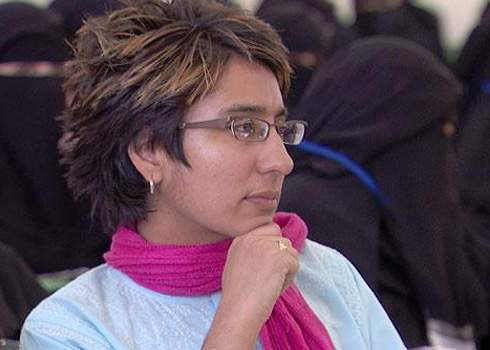An Open Letter Tradition: From Luther to Manji
Open letters have long fueled religious and social reform—from Martin Luther’s 95 Theses to Martin Luther King Jr.’s “Letter from Birmingham Jail.” In that spirit, Muslim author Irshad Manji has written her own expansive open letter: a 250-page challenge to her fellow Muslims titled The Trouble with Islam: A Muslim’s Call for Reform in Her Faith.
Who Is Irshad Manji? A Brief Biography
Born in 1968 to a vibrant Muslim community in Uganda, Manji emigrated to Vancouver, Canada, after Idi Amin expelled South Asians in 1972. She later became a popular broadcaster with a youthful audience. Her journey toward Islamic reform began in childhood at madressa, where she noticed gender segregation, anti-Semitic teachings, and rigid orthodoxy that stifled questioning.
Why Manji Says “Islam Must Change”
Manji asserts that contemporary, mainstream Islam resists diversity and sidelines women—alienating Muslims like herself, a South Asian lesbian who considers herself devout. She argues that “deep-seated prejudices against women and religious minorities” have become hallmarks of the mainstream, even marginalizing contemplative Sufis under powerful clerics and state authorities.
Mainstream Islam and the Marginalization of Diversity
Although every faith grapples with prejudice, Manji believes Islam’s current orthodoxy fosters exceptionalism that harms millions—Muslims and non-Muslims alike. Yet she insists that Islam’s core teachings, and the spirit of its “golden age” (9th–11th centuries), refute sexism, anti-Semitism, and slavery.
Ijtihad: Reviving Islam’s Tradition of Independent Thinking
At the center of Manji’s reform agenda is ijtihad, Islam’s heritage of independent reasoning. Rather than unquestioningly absorb “approved” interpretations, Manji says Muslims should engage the Qur’an directly—even to the point of discarding expert opinions when personal study reveals new insights. In her view, the Qur’an celebrates multiplicity—of gender, skin tone, and orientation—so compressing humanity into conformity dishonors the Creator.
How Ijtihad Challenges “Expert Opinion”
Manji contrasts ijtihad with rote indoctrination. Historically, scholars taught students to question and interpret. She calls for rekindling that courage today, especially among Muslims in the West who have relative freedom to speak out.
Economic Empowerment as Spiritual Reform
Manji links financial independence with theological independence. In post-Taliban Afghanistan, microloans—paired with conditions like family planning, literacy, and Qur’an study—help women grow as full human beings, not just small entrepreneurs. Economic empowerment becomes a lever for social and religious transformation.
“Foundamentalism”: Culture vs. Core Faith
One of Manji’s boldest claims is that contemporary fundamentalism is less about piety and more about cultural imperialism and territorial control. She coins “foundamentalism” to describe elevating the 7th-century Arabian cultural context to doctrinal status. While the Qur’an prescribes no specific form of government, Muslims are taught to mimic tribal power structures. This, she argues, eclipses Islam’s history of collaboration with Jews and Christians to revive Greek philosophy.
Staying Muslim While Demanding Change
Despite her critiques, Manji remains within Islam—believing reform must be voiced by insiders to be heard. Still, she admits she may leave if fellow Muslims, particularly in the West, show no appetite for change: she refuses complicity in systemic harm.
Ritual vs. Meaning: Manji’s Personal Prayer Practice
By age 25, Manji found traditional ritual empty: ablutions, compulsory angles of prostration, and timed recitations felt rote. To revitalize her faith, she shifted to spontaneous, heartfelt conversations with God—her own form of mindful, living prayer.
Faith vs. Dogma: Why Questioning Strengthens Belief
Manji contends that true faith welcomes inquiry; dogma fears it. She frames The Trouble with Islam as an act of faith—using the intellect and heart God granted her to ask hard questions without diminishing the divine majesty of creation.
The Trouble with Islam: A Catalyst for Public Conversation
Since publication, Manji has received private support—especially from Muslim women and youth—who feel relieved that someone is voicing what they only dared to imagine. The challenge now is converting this underground hunger for reform into an outspoken movement.






